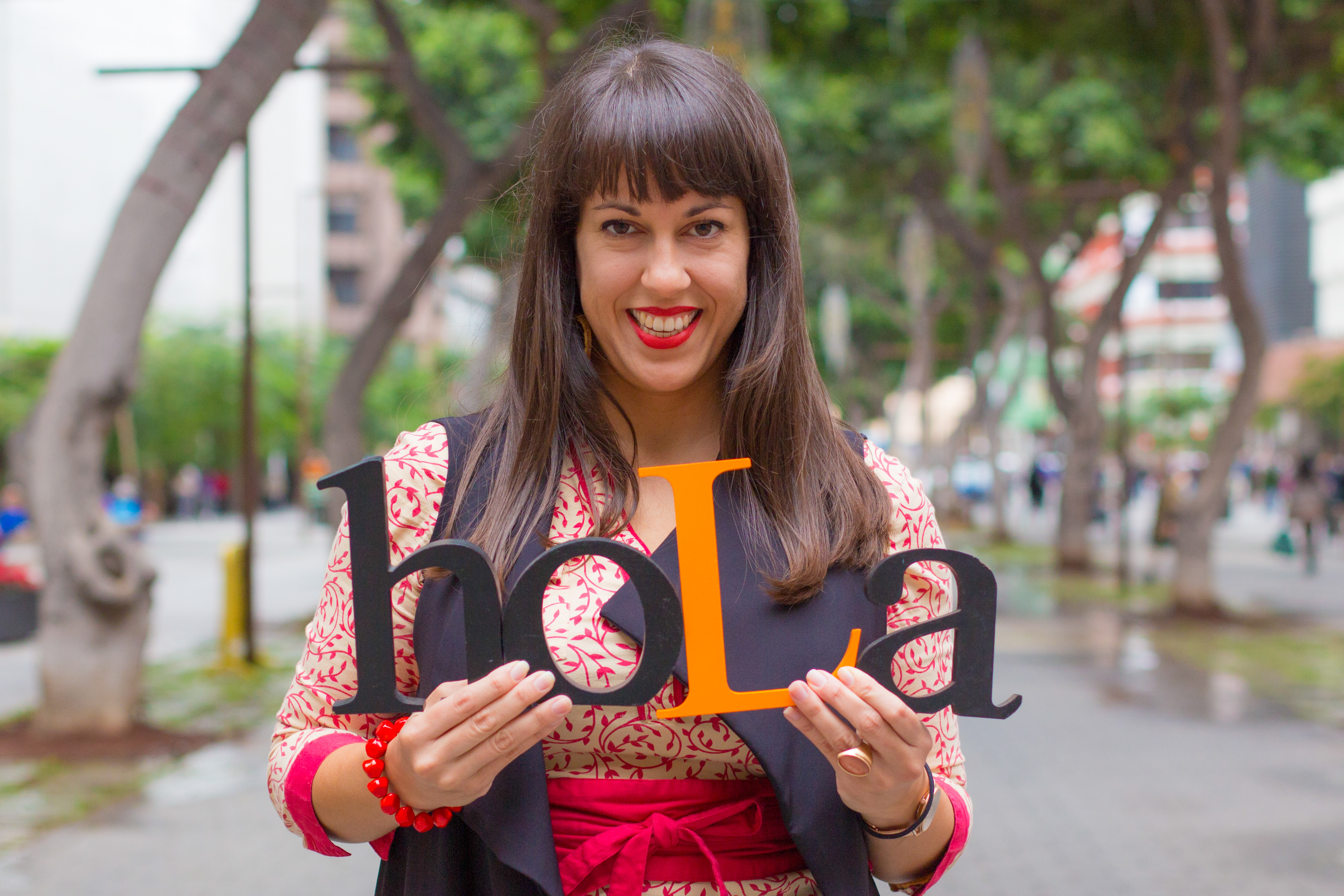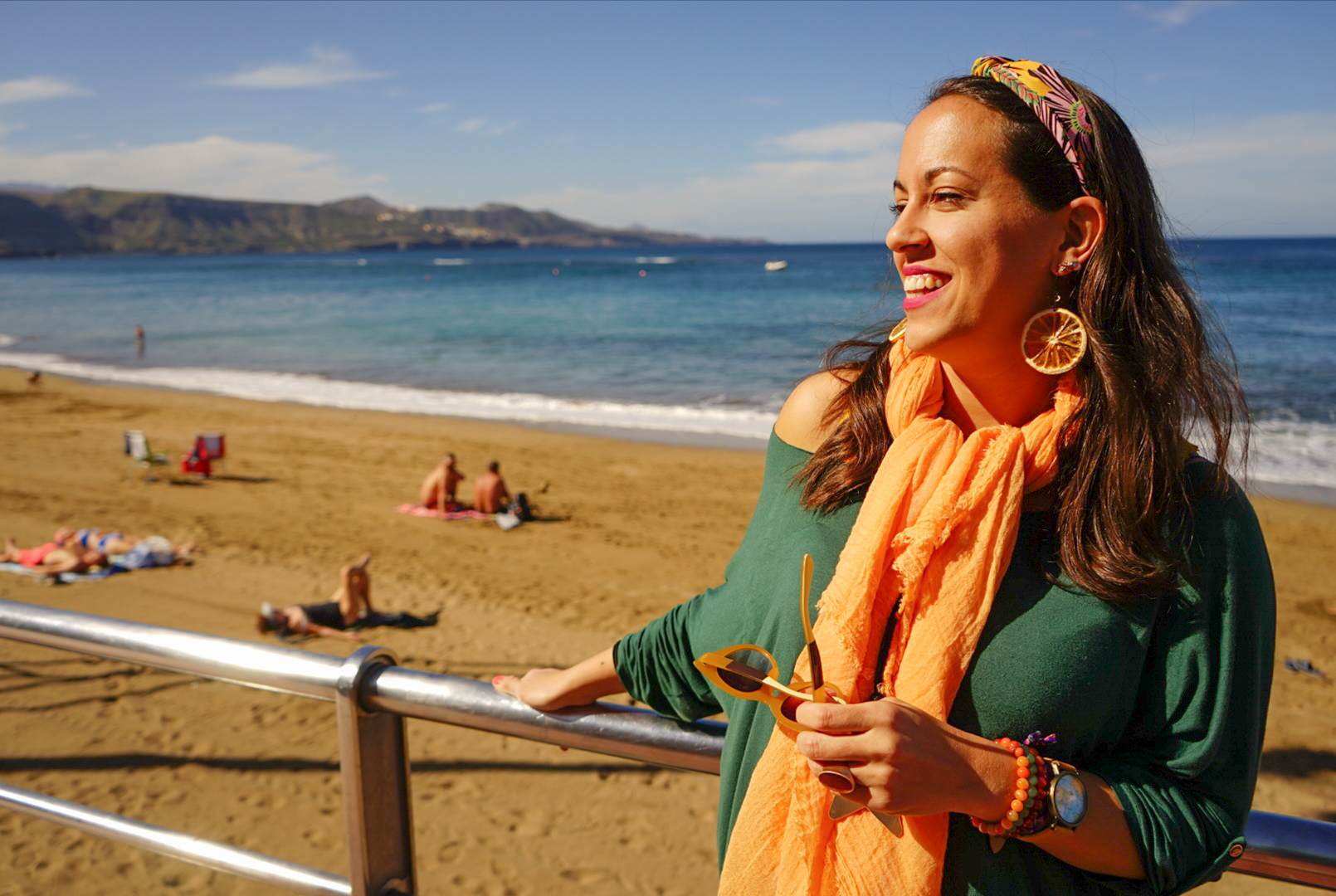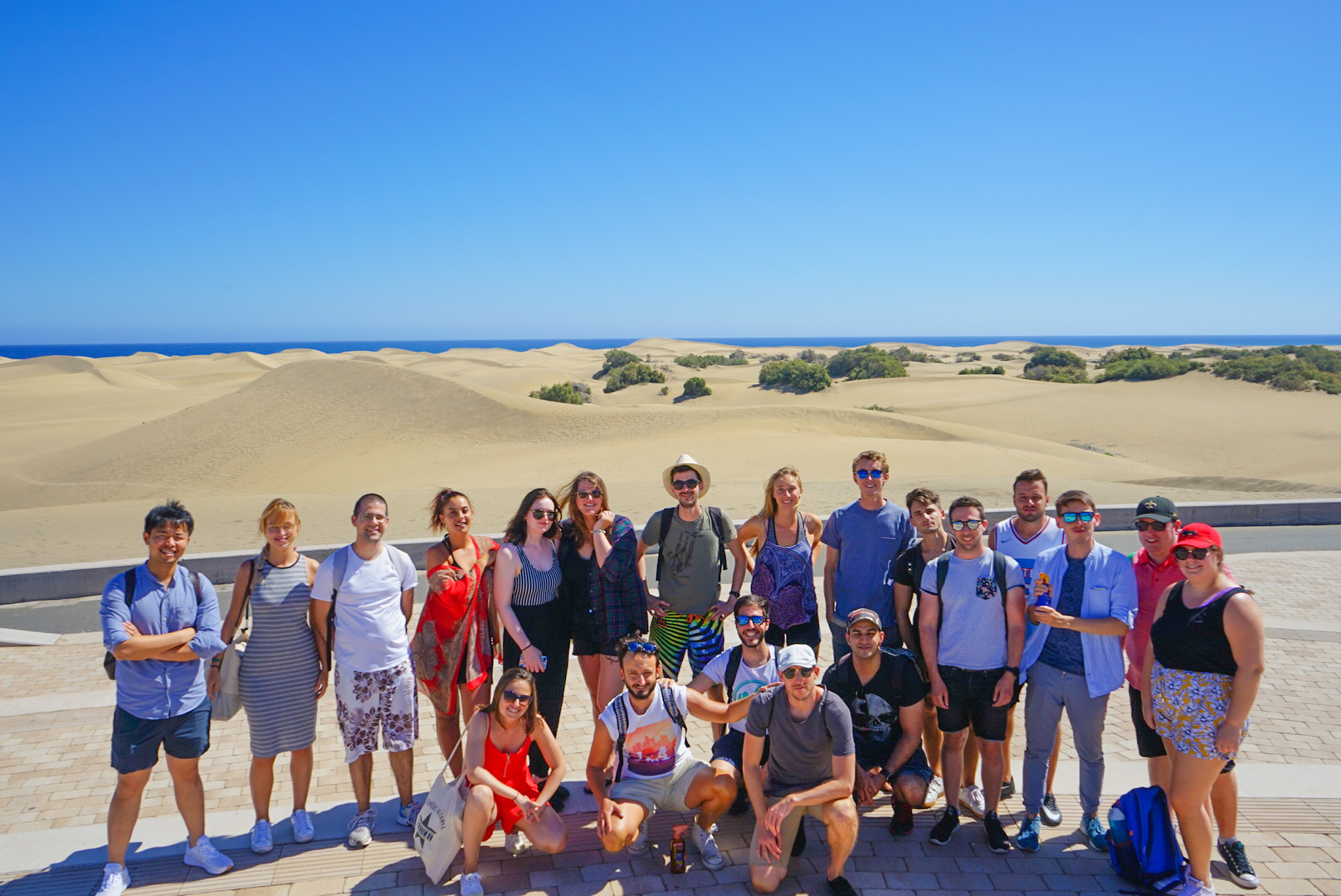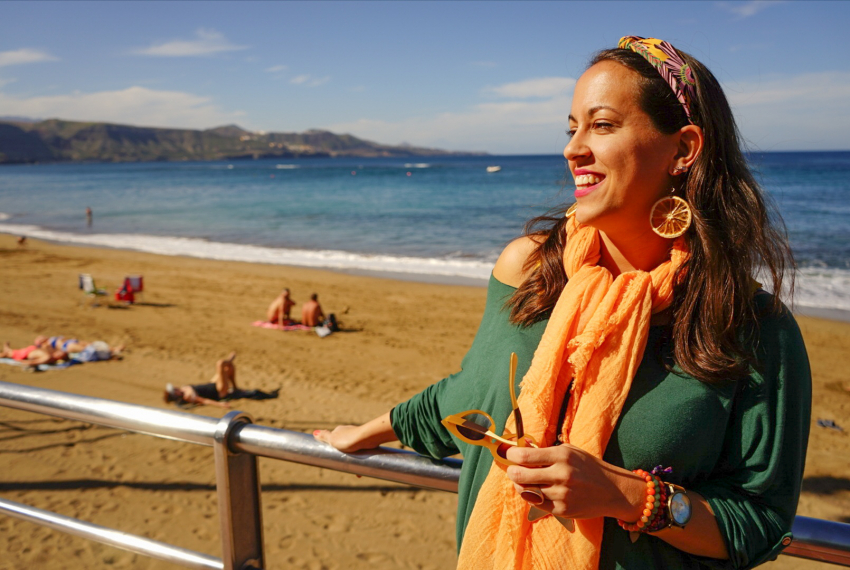Learn Spanish With A Local Teacher From La Casita De Laura In Las Palmas
Learning Spanish for a couple of hours is a fun holiday option that lets you experience what it really feels like to be Canarian, and have some real-life interactions with locals during your stay in paradise.
It is also essential if you plan to stay on the island(s) or travel to Spain for more than a getaway.
In this article you will:
- learn about “La Casita de Laura - Learn Spanish”, a successful language business based in Las Palmas de Gran Canaria (teaching Spanish to foreigners for over 8 years!),
- pick up some useful Spanish tips for when you are in the Canaries and...
- get to meet the young entrepreneur behind it all.

HOLA, Laura León! Could you share a bit about why did you decide to dedicate your life to teaching Spanish and helping newcomers integrate in the local language and Canarian culture?
I love traveling and learning languages myself (I speak English, Italian, French and understand a few other European languages), so it soon became very natural to also share my language and my culture with other travelers. That is why almost 9 years ago I decided to create “La Casita de Laura – Learn Spanish”, to help newcomers integrate in the community and learn more about the locals, our way of living life and enjoying its simple things.

How easy is learning Spanish at La Casita? What can people expect when learning Spanish with you?
Imagine if you could learn Spanish with your best friend. Well, what we offer is exactly that! We are three freelance teachers working under the same brand name. What we do is we become our students friends and we guide them through the process of learning Spanish with a very conversational method and lots of practice. We keep it very simple and more importantly FUN, so our students don’t frustrated with all the boring grammar. Anyone joining our community can expect very little weekly commitment and a great progress. You just need to read our reviews and see how many students tend to extend their programs, to keep on learning and having fun with us.
So, you are teaching anyone who would like to learn Spanish? Do you only teach adults or also children?
We have had students from 5 up to 70 something years old. We do specialize in expat families and remote workers or digital nomads who need Spanish to live in the Canaries, but we also have many students who decide to come here on holidays and take Spanish to get to speak to locals and enjoy their experience to the max. I teach mainly adults but my colleague Niti is also really good with children. More recently, due to the COVID crisis we have focused more on the online teaching which has allowed us to get even students from abroad, people who would like to improve their Spanish and get ready for their next visit to a Spanish speaking city. For in-person lessons (whenever possible due to the restrictions), me and my colleague Niti we teach in Las Palmas and our other colleague, Dina, teaches in Maspalomas.
What would you say it is the common struggle of those who start learning Spanish?
They struggle with basic conversations in interactions with locals. They feel alone and lost in translation! Especially those who come to Gran Canaria to live with their Canarian partner - when they meet their new extended family they often feel like they can’t find the words to be able to interact in basic everyday life conversations. We focus on making that integration process faster and less painful. They find in our lessons a safe space for them to make mistakes (and not be judged), get proper corrections and grammar explanations when needed. It helps them regain some control in their lives. We connect with them because we understand what they are going through. It’s very rewarding seeing them grow confidence and become the most updated Spanish version of themselves. And they know they are not alone. We have created an amazing community and we do organize free Spanish meetups online and in-person ones whenever we can.
Could you share some Spanish tips for our readers to make it easier to understand Canarians?
Here you go, the top 5 Canarian Tips that will help you a lot:
1. Letter “-S” is kind of randomly exhaled mostly at the end of words, and it sounds almost like an English “h”, but for some reason tends to sound like an omission to foreign ears. One good example would be “gracias” which really sounds like “graseeah”, or ‘hasta luego’ which sounds like “ahta looegho”.
2. Canarians use “ustedes” instead of “vosotros” when addressing more than one person at the same time (“you all”). For example, we would say “¿Ustedes son de Reino Unido?” for ‘Are you all from the UK?’, instead of “¿Vosotros sois de Reino Unido?”. This actually happens also in most countries across Latin America, so we could say that “vosotros” is only used in the mainland, and even they may understand you if you use “ustedes” and not “vosotros”. Canarians can travel to the mainland and they never have any misunderstandings, they may just sound more formal – which is not a bad thing, right?
3. When Canarians use “mi niño/a” (my child), “mi cielo” (my sky), “mi amor” (my love) they are doing it from a good place as a term of endearment, don’t take it literally. They are not calling you “my child” or “my love”, they are just trying to be friendly and more approachable. Once you get used to it, you will miss it when you go back.
4. Canarians don’t use “Pasado Compuesto (Pretérito Perfecto Compuesto)”, they use “Indefinido (Pasado Simple)” instead. But I always encourage my students to use it because it’s easier to conjugate and we understand it anyway. For example, “Hoy fui a la playa” rather than “Hoy he ido a la playa”, to say that you went to the beach earlier that day.
5. We have a beautiful and very rich dialect and very funny words for some everyday things, for example “la guagua” for bus, “papa” for potato, “mojo” for our very own Canarian red or green spicy sauce, “millo” for corn, “leche y leche” for a delicious and extremely sweet coffee with condensed milk, “fleje” for when we want to say “a lot”, “calufa” for extreme heat and “chacho/a” for buddy/girl.
Thanks so much for sharing these useful tips and for your dedication to help newcomers in Gran Canaria. How can people connect with you?
They can find “La Casita de Laura – Learn Spanish” on Google, Facebook and Instagram, and also feel free to reach out via email to This email address is being protected from spambots. You need JavaScript enabled to view it. We are also working on our YouTube channel where we will be sharing tips and hacks to learn Spanish faster and easier.
So, if you would like to learn Spanish or improve it, head to “La Casita de Laura – Learn Spanish”; hands down the most fun and useful Spanish learning experience in Gran Canaria.
Gran Canaria Info recommends:
- Default
- Title
- Date
- Random













